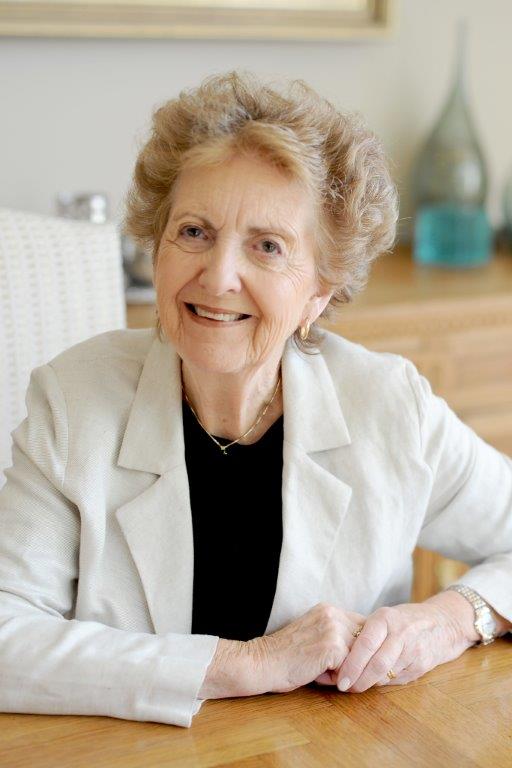Coronavirus fear and panic is gripping kids across Australia:How to help them
- Written by Tess Sanders Lazarus

With coronavirus causing more and more deaths, panic and fear is beginning sweep the nation. Psychotherapist Pauline McKinnon has some tips about how parents and schools should approach dealing with the coronavirus fears of their children/students.
McKinnon has been a leader in the field of therapeutic meditation for over 30 years. She is the founder of the Stillness Meditation
“Coronavirus is causing a lot of panic in Australia, and a lot of that panic is coming from school-aged children and teenagers. Schools and parents have a special responsibility to help children through this difficult time,” McKinnon said.
According to Pauline McKinnon, school students are experiencing a lot of panic. She believes that schools should be reminded to inform their students about the facts of coronavirus, as well as strategies in how to best deal with the panic. Some children are coming home from school crying petrified about dying.
“Obviously the places where a virus is most likely to spread are the places where large groups of people congregate. The school holidays have ended and kids are back at school. When kids are looking around at their fellow classmates, they don’t know who just got back from China on holiday,” McKinnon said.
“Students are reading what they see online and on social media where everything is exaggerated and amplified for maximum impact, and they’re getting worried that they could be the next person to contract the virus. A lot of younger students think they’re going to die from this thing.
“The last thing we want is students discriminating from other students based on their ethnicity. We should be wary of bullying against Chinese students. We shouldn’t ostracise Chinese students for fear of contracting the coronavirus. Unfortunately, kids can be mean. They don’t really understand that.”
McKinnon believes that parents need to appreciate how scared kids are at this time. She believes that in times of panic, people need to pay attention to how children react, because they often have different and more severe reactions than adults.
“A child’s brain operates very differently to an adult’s brain. An adult’s brain is able to reason using logic and evidence. An adult’s brain is also much better at understanding probability and putting catastrophes into perspective,” McKinnon said.
“An adult’s brain is able to reign in fears using logic and life experiences. We know that things get better in the face of our fears. Kids don’t usually have that ability. They hear about a scary monster and they immediately assume it’s under their bed.
“Kids can lose sleep, worrying over things that probably will never happen. Kids lose sleep for fear of the bogeyman. On the topic of health issues, the child’s imagination will colourfully envisage the virus affecting them-self.
“When the worry expressed by a child’s elders is transmitted to them, their imagination is ripe for converting a few words into an outright disaster. When it comes to children, the old saying “a little knowledge is a dangerous thing” really applies.”
According to McKinnon, kids will react differently. There will be the confident fear-mongers and doomsday predictors. There will be the nervous kids who believe the words of the fear-mongers.
“Kids are going talk to each other about coronavirus. That’s inevitable. Some of the ‘tough’ ones will embellish and exaggerate the story. The confident types who just happened to watch the news that morning will highlight all that could happen and could go wrong. They will relish every juicy detail, frightening everyone. This will happen in primary schools up to high schools and university,” McKinnon said.
“Other kids are more reflective. They’re listeners rather than talkers. They may be so sensitive to the predictions of the doomsayers that they physically feel symptoms like heart beat quickening, hot and cold flushes, nausea, vomiting, headaches, weakness and tearfulness.
“The coronavirus fears may well escalate, manifesting as chronic anxiety, may likely explode into family life, giving reign to the most powerful human reaction to a disaster that most probably will never occur. Some sort of remedy is needed.”
As a psychotherapist and one of the world’s expert in ‘stillness meditation’, McKinnon is well placed to provide advice about how to control and manage fears.
“Use dinner time to teach your kids about facts, not fantasies. Family time, truthful discussions, humour, fun and quiet calming practices should be introduced to balance otherwise hysterical information sharing,” McKinnon said.
"The best antipode to panic about the coronavirus are facts. Facts fix everything. There are less than a dozen coronavirus patients in Australia. They’re all in strict quarantine. There is a travel ban imposed on China at the moment and there are incredibly smart people looking to fix the crisis. That’s the message we should tell children, not fear mongering and scare tactics.”
McKinnon is an expert of ‘stillness mediation’ — a popular meditation method developed by Australian psychiatrist Dr
“Adult fears should not be transmitted to children. Stillness meditation
“The key to stillness meditation is to get your brain to rest and focus on absolutely nothing. Unlike other meditation techniques, s





